The US strikes in Iran have prompted protests in various cities around the world.
Have a watch:
US strikes on Iran prompt protests internationally
We'll continue to bring you the latest developments so stay with us.
The US strikes in Iran have prompted protests in various cities around the world.
Have a watch:
US strikes on Iran prompt protests internationally
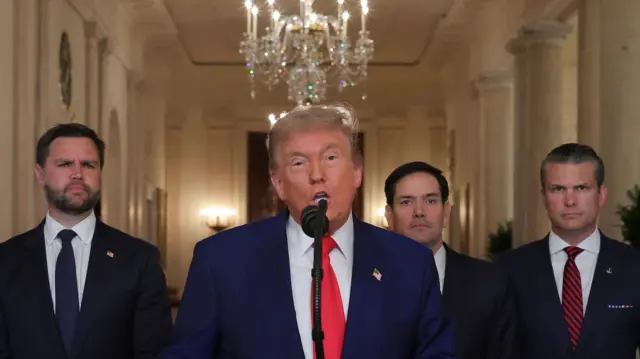 Image source, EPA
Image source, EPA
President Trump delivered an address to the US on Saturday, flanked by Vice-President JD Vance (left), Secretary of State Marco Rubio (on his immediate right) and Defence Secretary Pete Hegseth (far right)
US President Donald Trump has just posted on his Truth Social site saying the US caused "monumental damage" with its strikes on "all nuclear sites in Iran".
"Obliteration is an accurate term", he wrote.
Referring to a satellite image which he did not share in the post, Trump said a "white structure shown is deeply imbedded into the rock" and "completely shielded from flame", while "the biggest damage took place far below ground level."
"Bullseye!!!" he added at the end of the post.
Americans all over the world are asked to stay alert, in the wake of US strikes against Iran.
The US State Department has issued a worldwide security alert for US citizens.
"There is the potential for demonstrations against US citizens and interests abroad. The Department of State advises US citizens worldwide to exercise increased caution," it says.
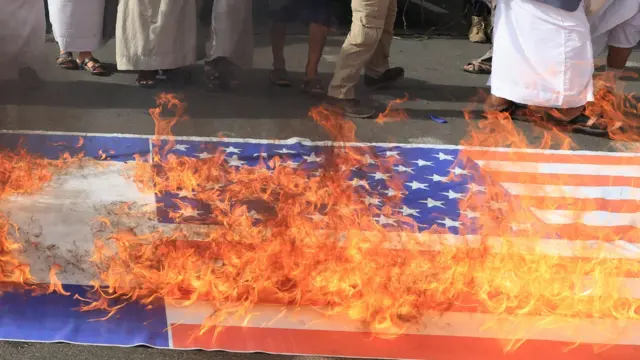 Image source, EPA
Image source, EPA

Asia business correspondent in Tianjin, China
US Secretary of State Marco Rubio has called on China to help stop Iran from shutting down the Strait of Hormuz, a critical trade route, with almost a quarter of the world's oil and gas passing through it.
Rubio's comments followed reports on Iranian state TV that the country's parliament had approved a measure to close the narrow waterway at the mouth of the Persian Gulf.
"I encourage the Chinese government in Beijing to call them about that, because they heavily depend on the Strait of Hormuz for their oil," said Rubio on Fox News.
"If they do that, it will be another terrible mistake. It's economic suicide for them if they do it."
Any disruption to supply would have profound consequences for the global economy, sending oil prices higher with major importers, like China, India and Japan hard hit.
Analysts say the authority to close the Strait lies with regime security officials rather than parliament, and because Iran also depends on transit through the Strait for its own exports and economy, it would be a particularly risky retaliatory move.
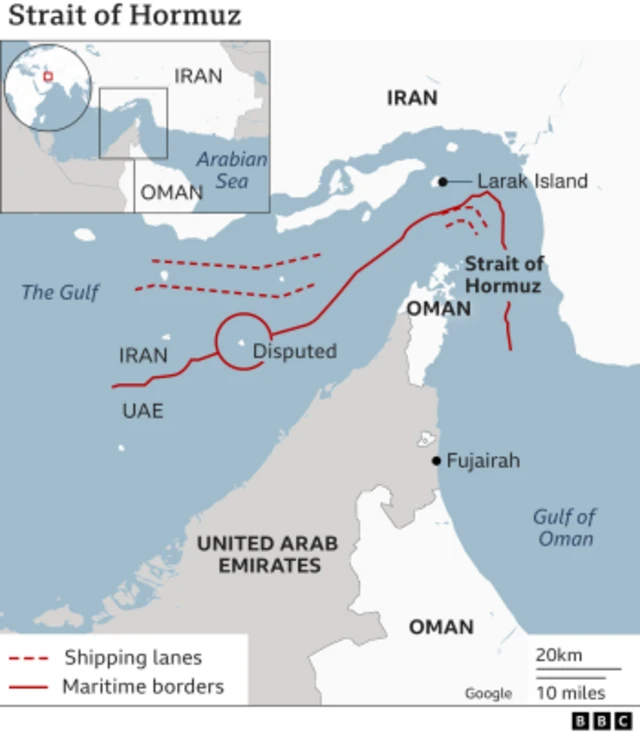
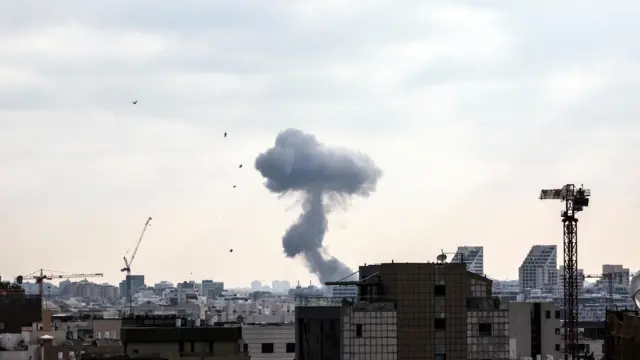 Image source, Reuters
Image source, Reuters
Smoke can be seen during a missile attack from Iran on Israel
The Israel Defense Forces (IDF) posted minutes ago on X that sirens were sounding across central Israel because of a missile launch from Iran.
The Israeli military let civilians know a short time afterwards that it was safe to emerge from their shelters, signalling the threat was over for now.
Over the past day, Israel and Iran have been trading attacks.
From Iran to Israel
Earlier on Sunday Tel Aviv was hit by Iranian ballistic missiles. Residential buildings were damaged.
At least 27 Iranian missiles were launched in two waves, some of which also struck northern and central Israeli areas, including Haifa, Nes Ziona and Rishon Lezion.
From Israel to Iran
Israel sent 20 fighter jets to conduct what it calls “intelligence-based strikes” across Tehran, Kermanshah and Hamedan.
The targets included missile storage and launch facilities, radar and satellite systems, and a surface-to-air missile launcher near Tehran, said Israeli officials.
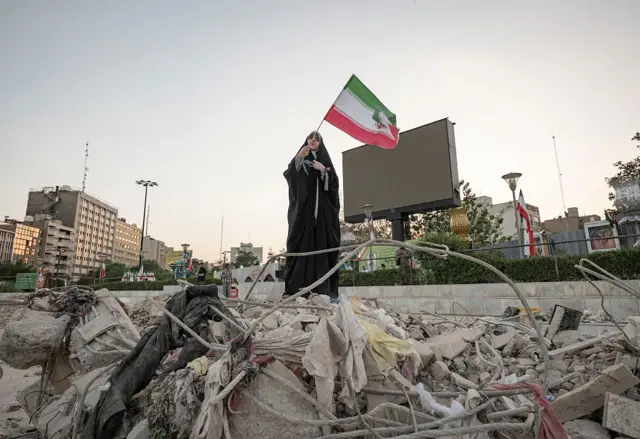 Image source, Getty Images
Image source, Getty Images
An Iranian art student waves a country flag by a destroyed building in Tehran on Saturday
BBC News, Singapore
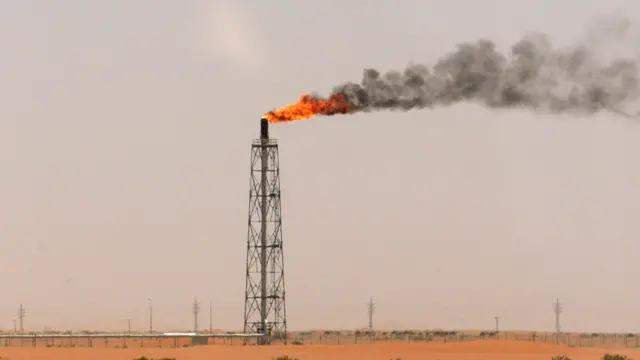 Image source, Reuters
Image source, Reuters
Energy markets have opened for the first trading session following the US attack on Iran.
The price of the benchmark Brent Crude rose more than 3% in early trading, climbing to over $79 a barrel.
Oil prices were expected to increase following the attack over the weekend, with traders concerned about potential disruptions to the supply chain.
Stock markets in Asia will open over the next few hours.

Security correspondent
The big question in all of this is an even more worrying one than 'will Iran try to close the strategic Strait of Hormuz?', although that would certainly have major economic, political and military consequences.
Instead, the gravest question of all, to which almost none of us know the answer is this: Does Iran still retain enough Highly Enriched Uranium (HEU), hidden away at a secret underground location, plus the knowledge and the means to weaponise it, to now take a decision to race for a crude nuclear bomb?
In other words, have the combined US and Israeli attacks removed the threat of Iran becoming a nuclear-armed state – or made it more likely?
A military expert I have spoken to maintains that if Iran has managed to preserve enough of its HEU then its scientists should, if left to work unimpeded, be able to test a simple, first-generation gun-type device using a neutron initiator. This device, he says, is easier to engineer than an implosion device.
It has long been assumed that if Iran acquires the bomb then Saudi Arabia and other states in the Middle East will also try to acquire it, triggering a nuclear arms race.

Chief international correspondent
For decades, the United States and Iran have carefully avoided crossing a dangerous red line into a direct military confrontation.
One American president after another held back from deploying their military might against the Islamic Republic for fear of sinking the US into potentially the most perilous Middle East war of all.
Now, the commander-in-chief, who promised to be a president of peace, has crossed this Rubicon with direct military strikes on Tehran's nuclear sites.
It's an unprecedented moment provoking alarm in capitals the world over.
Iran's next move could be even more momentous.
Read more here